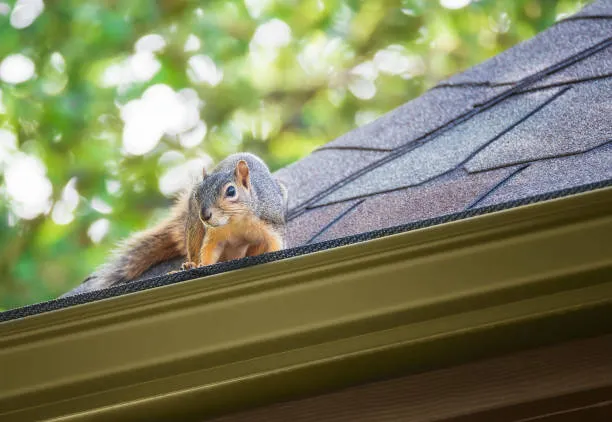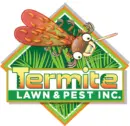SQUIRRELS
Squirrels may be adorable and cute. However, they are harmful to our flowerbeds, gardens, and lawns.
Not to mention, their droppings can cause a range of diseases. Since squirrels are rodents, their feces may contain leptospirosis, rabies, and other diseases.
We are experts at trapping and removing squirrels properly and safely. We offer free evaluations. Click here to read what our happy customers are saying about us on Google!

Property Damage from Squirrels
Squirrels are mainly a threat to property damage, especially in dense urban areas. Most squirrels chew on bark or nutshells during their foraging, but in dense urban areas, they have become a major problem.
A squirrel’s incisor teeth are constantly growing. They must chew regularly to prevent their teeth from overgrowing and causing injury.
They will chew through the structural support of a home, as most homes are made of wood and plaster. This weakens the home’s structure and makes it prone to collapse.
They can also chew through cables and electrical wiring, which poses a serious fire hazard.
Do Squirrels Spread Disease?
Squirrels, like many other rodents, can carry and spread certain diseases, some of which can be quite severe and even transmitted to humans. While some diseases are mild and don’t cause much harm, others can lead to serious health problems in humans, zoo animals, and domestic pets. Here are some of the diseases associated with them:
Bubonic Plague: Squirrels can carry and transmit the bubonic plague, which can cause symptoms like high fever, rashes, fatigue, weakness, and gangrene. However, some infected squirrels may not show any symptoms at all, making detection challenging. The disease is mainly found in the Southwestern United States, and affected areas are quarantined to prevent its spread. Immediate diagnosis and antibiotic treatment are necessary for infected humans.
Squirrel Pox/Squirrel Fibroma: Squirrels can contract this disease from insect bites, resulting in harmless skin tumors. However, it can progress to affect internal organs and cause multiple organ failures.
Microbial Infections: Squirrels can also contract infections from bacteria and fungi, leading to symptoms like hair loss and skin discoloration. These diseases can spread easily through touch or contact, so prompt veterinary treatment is essential to prevent their spread.
Leptospirosis & Tularemia: Contact with infected squirrels transmits these bacterial infections, causing symptoms similar to microbial infections. Quick veterinary intervention is necessary to prevent their spread.
Rabies: While rare, rabies can occur in them and is easily detectable. Symptoms include sensitivity to light, excessive salivation, and irritability. Rabies can only be transmitted through bites or scratches from infected squirrels or other animals.
Most of these diseases are zoonotic, meaning they can spread from animals to humans. If you suspect an infected squirrel, it’s crucial to contact specialists to prevent the spread of these diseases within the community.
Professional Removal and Exclusion
We will identify the point of entry from your home’s exterior. Squirrels tend to enter houses through small holes from previous unseen damage. Using traps, we will remove the wildlife from the premises and apply exclusionary measures to prevent it from reentering the same area of your home.
Call for a free consultation: (407) 447-7378
Termite Lawn and Pest serves the entire Central Florida region. Explore our list of comprehensive services and service areas to discover how we can meet your needs.
Termite Lawn and Pest, Inc
4524 Parkway Commerce Blvd
Orlando, Florida 32808
Phone: (407) 447-7378
